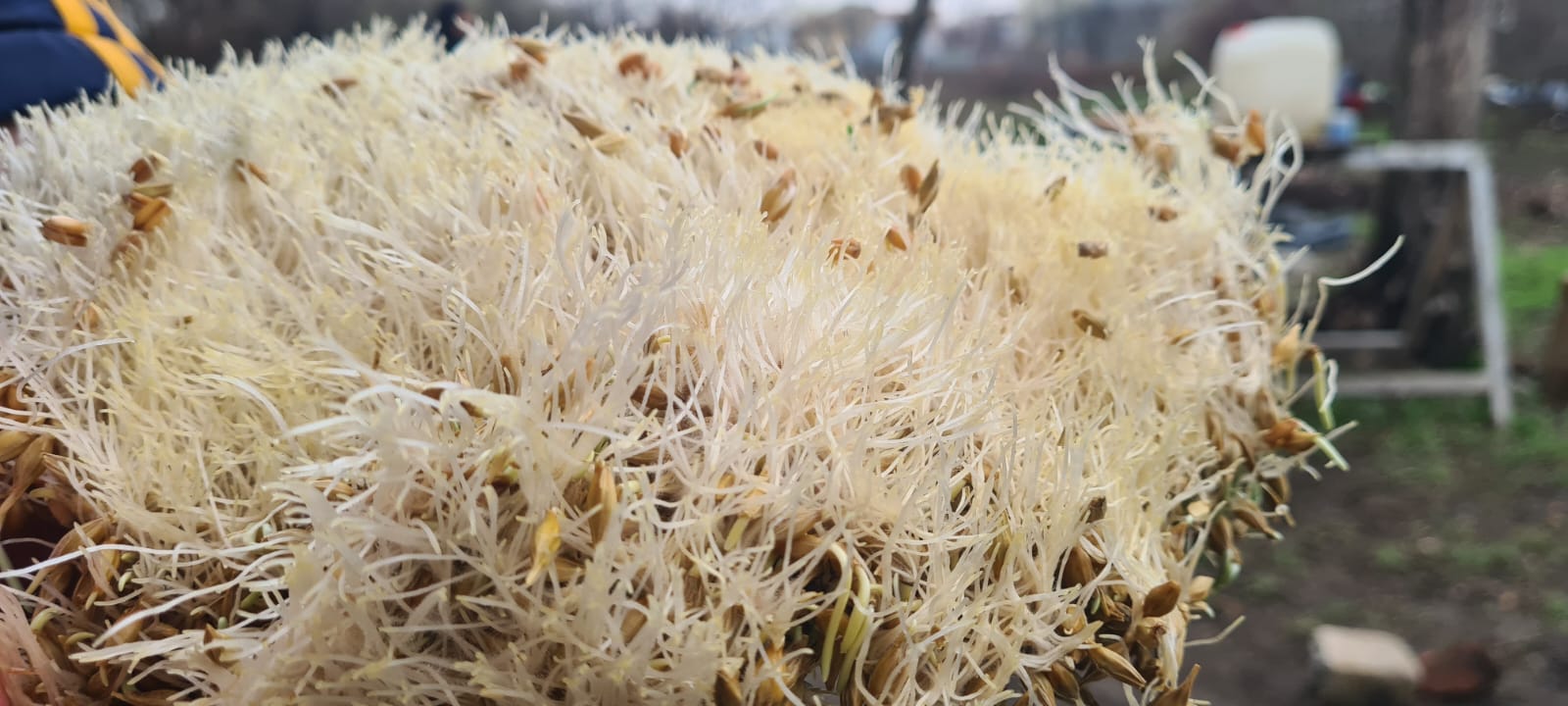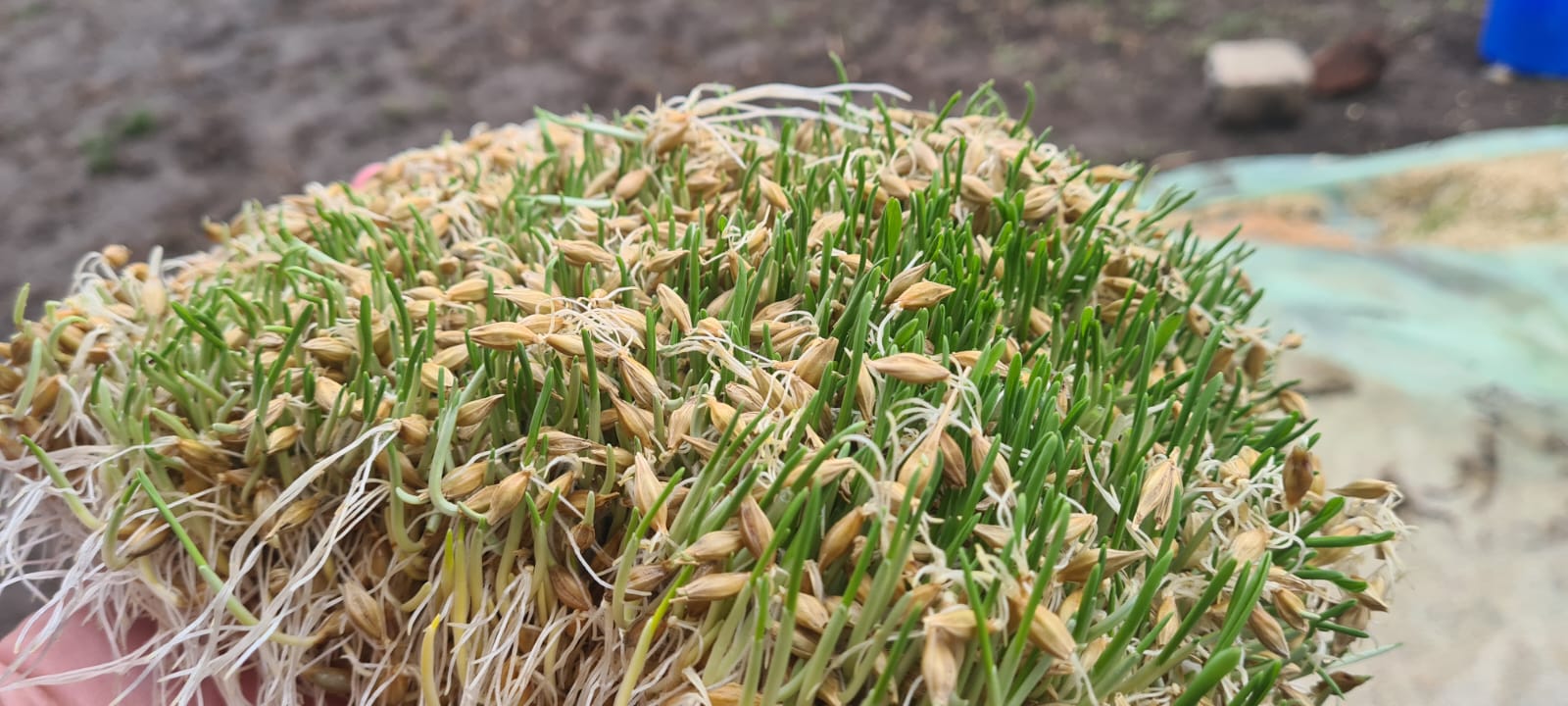In short, you face two problems.
Firstly, when barley sprouts, the amylase converts the starches into sugars, and the germ consumes the sugars as "fuel" to grow. That's why barley works that way (as do all other seeds): the combination of starch and enzyme is a "long shelf life" way to store food needed by the germ to grow until the plant has established enough of a root system to support itself. Starch doesn't go off or attract molds and bugs the way sugar does, but the germ cannot use starch, it needs sugars. So amylase converts starch to sugar when the germ needs it to grow (generally in spring when temperatures and humidity rise, which activates the enzymes).
During the malting process the barley is allowed to sprout because the starch supply is encapsulated in protein capsules, and these would get in the way of the brewing process. Fortunately sprouting starts with breaking down these protein capsules which liberates the starches for further enzymatic action. That is what the sprouting during malting is for: to start the protein capsule breakdown.
However, further growth of the sprout doesn't help the brewer any. It only consumes the starch via natural saccharification as part of the advanced sprouting. Bottom line: by now your barley has lost most of its beery goodness to the growing sprouts.
The second problem is that too much plant material will infuse your beer with all sorts of vegetable flavors. During the malting process the sprout is dried which makes it more brittle, and then it is removed through tumbling. So little or no "vegetable" character is left in the malt. In your case, however, a lot of green plant stuff will be left since it can't be removed via drying (which would make it sufficiently brittle and "break-off-able") so you're stuck with it.
Bottom line: with most of the desirable starches gone and too much unwanted plant material present, I definitely wouldn't use it for brewing. What you have right now is closer to bean sprouts than to brewing malt. Maybe it'll work in a salad, but I haven't tried that myself...

